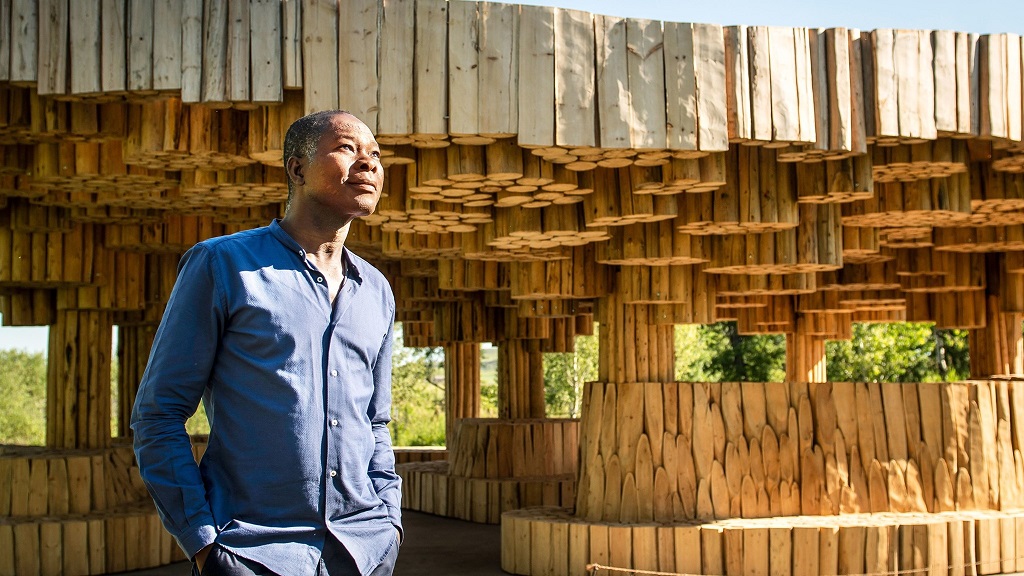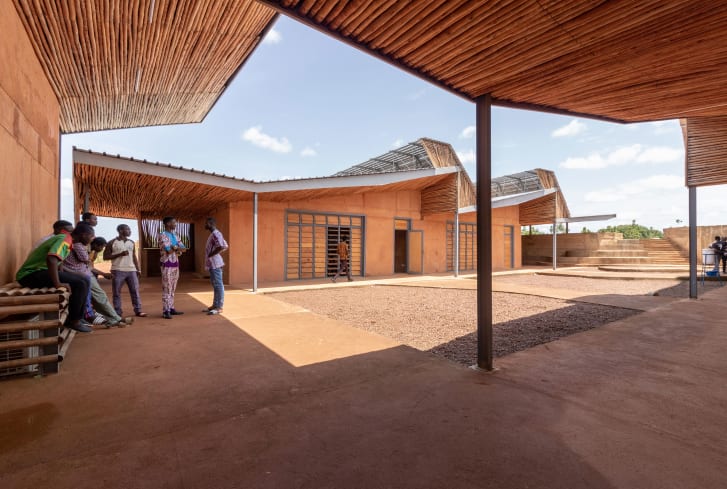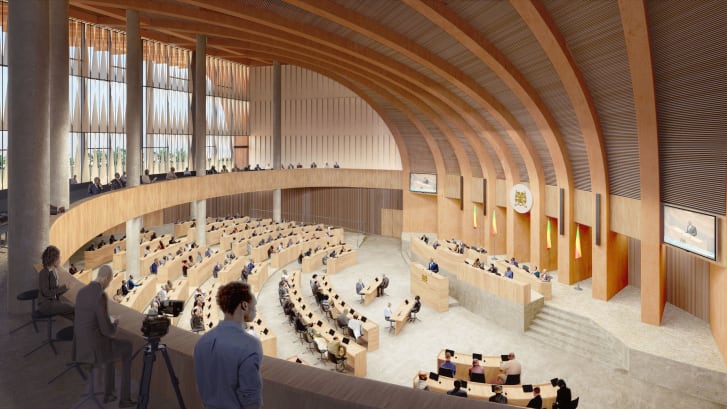The Berlin-based architect who became famous for the “Opera Village Africa” in Burkina Faso, has now been bestowed with the world’s most prestigious honour in his profession.
Diébédo Francis Kéré was awarded the Pritzker Prize, the highest award for architecture, on Tuesday. He thus becomes the first African to win what is generally regarded as the ‘Nobel of Architecture’.
“”He knows, from within, that architecture is not about the object but the objective; not the product, but the process,” the prize jury said in its citation. “His buildings, for and with communities, are directly of those communities – in their creation, their materials, their programmes and their unique characters,” the jury added.

The 56-year-old Burkinabé became world renowned with the socially minded designs of his work, consisting mainly of schools, health centres and community facilities. The uniqueness of Kere’s work is the incorporation of local materials and building traditions, paying due regard to the climate.
Even though Kéré was trained as an architect in Berlin, he struck out at the beginning of his career to change the practice of modern architecture in Africa, where the traditional is frowned upon and everything from outside the continent is considered superior.
“There is still a feeling that everything that’s local is primitive,” he said. “Let’s say 90% of people in Burkina Faso use clay, but they see it as a ‘poor person’s material.’ So, when they have more money to spend, they try to look for other materials,” Kéré said in an interview, narrating the resistance he faces when he opts for the use of local materials in his buildings.

“Sometimes the Western world – and how it communicates – makes things in the West (appear to) be the best. And they are perceived by others to be the best, without taking into account that local materials can be the solution to the climate crisis and can be our best alternative in terms of socio-economic development, Kéré told the CNN.
“The more local materials you use, the better you can promote the local economy and build local knowledge, which also makes people proud,” the architect, who has lived in Germany since 1985 and runs the internationally active company Kéré Architecture in Berlin, added.
In addition to his home country, Kéré has also worked on architectural projects in Mali, Kenya, Uganda, the USA and Germany. He became famous, among other things, for his work on the “Opera Village Africa” conceived by director Christoph Schlingensief, who died in 2010.

Kéré grew up in Gando, a village in Burkino Faso. At the age of seven, his parents sent him to relatives in the next town so he could attend school. He began an apprenticeship after finishing school, where he was trained in the traditional construction methods of his homeland.
At the age of 20, in 1985, he came to Germany, thanks to a scholarship from the Carl Duisberg Society in cooperation with the German Development Service, where he finished his apprenticeship in carpentry and took his Abitur (A-levels) at an evening school.
In 1995, he began studying architecture at the Technische Universität Berlin. In 2001, even before completing his studies, he had been awarded the highly endowed Aga Khan Award for Architecture for the design and construction of a school in his home village of Gando. After graduating, he founded his own office, Kéré Architecture, in 2004.
In addition to the Aga Khan Award for Architecture, Kéré received the Global Award for Sustainable Architecture in 2009, the Swiss Architectural Award in 2010, the Marcus Prize for Architecture from the University of Wisconsin Milwaukee in 2011 and the Holcim Global Award in Gold in 2012.
Kéré will officially receive the Pritzker Prize, which goes with a US$100,000 grant and a bronze medal, at a ceremony in London later this year. Previous winners of the prize include Zaha Hadid, Rem Koolhaas, Norman Foster and Peter Zumthor. Kéré is the first Pritzker Prize winner to come from an African country.
Sola Jolaoso
Check out Kéré Architecture on its Website HERE and Facebook page HERE
 THE AFRICAN COURIER. Reporting Africa and its Diaspora! The African Courier is an international magazine published in Germany to report on Africa and the Diaspora African experience. The first issue of the bimonthly magazine appeared on the newsstands on 15 February 1998. The African Courier is a communication forum for European-African political, economic and cultural exchanges, and a voice for Africa in Europe.
THE AFRICAN COURIER. Reporting Africa and its Diaspora! The African Courier is an international magazine published in Germany to report on Africa and the Diaspora African experience. The first issue of the bimonthly magazine appeared on the newsstands on 15 February 1998. The African Courier is a communication forum for European-African political, economic and cultural exchanges, and a voice for Africa in Europe.

































